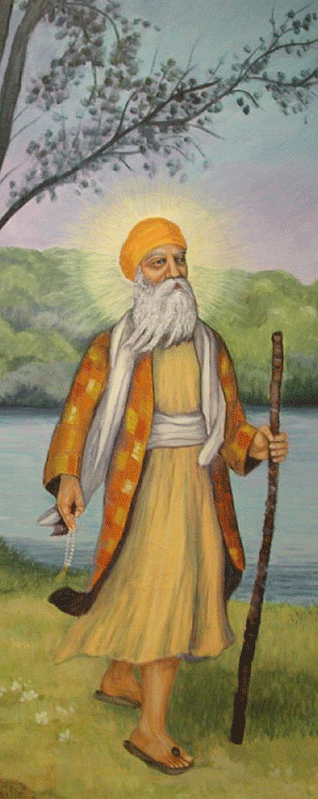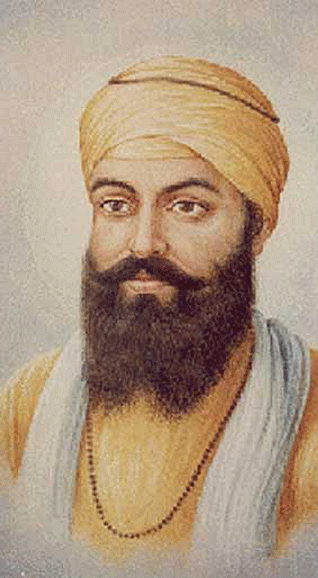Columnists
The Power and The Glory
by I.J. SINGH
One would think there is not much left to say about power.
Everyone wants it, and rare is the person who can walk away from it without a second glance of regret. Henry Kissinger dubbed power as the ultimate aphrodisiac.
The clichés about it are endless. Power corrupts and absolute power corrupts absolutely. On the other hand, nothing is quite as debilitating as powerlessness.
What exactly is power? Let's explore it through some who coveted it, and the rare few who turned their back on it.
The news these days is Zimbabwe's strongman, Robert Mugabe. He was formerly the grand old man of African politics who took the helm of the newly independent nation that was once Rhodesia. Mugabe, the liberator of his people in 1980, 28 years later, has morphed into the tyrant of his people. He just refuses to leave, and remains oblivious to the opinion of his people or that of the world.
Mugabe may be gone before long. In the meantime, he clings to power relentlessly. But he neither is the first nor is he the last to do so.
Many have accumulated mind-boggling power over others; far fewer are those who refused to stick to it, and walked away from its trappings gracefully.
We often proudly point to the amendment in the U.S. Constitution limiting the Presidency to two terms. But it has a relatively recent history.
George Washington could have easily been elected to a third term, but refused the temptation, as did his successors Adams, Jefferson, Madison and others. Ulysses Grant was perhaps the first to actively seek a third term, but his own party refused to nominate him. Teddy Roosevelt also tried with similar results; had he won, admittedly his would have been a non-consecutive term.
Perhaps because of the exigencies of war, Franklin Roosevelt won second, third and fourth consecutive terms. Soon after his death while in office, the 22nd amendment limiting the office to two terms was passed by the U.S. Congress on March 21, 1947; it was ratified into law by 36 States only on February 27, 1951.
From the time of Jefferson to Franklin Roosevelt, and continuing till today, the underlying fear seems to have been that of enabling a leader to become a dictator, even if he/she is the most benevolent.
Accumulating absolute power is not an easy trick, but it still seems easier than walking away from it. History is full of leaders who came to power by popular mandate, and then clung to it with ferocity, even at the risk of destroying themselves and their people.
We all remember Stalin, the absolute dictator of the Soviet Union for over 40 years; yes, he held mock elections periodically where he won by landslides of over 90 percent. Castro, who came to power on the wave of public and international support, still wields unquestioned power 50 years later. Vladimir Putin continues to rule Russia by fairly transparent democratic shenanigans.
Only 30 years ago, when in India the courts ruled against Prime Minister Indira Gandhi, she suspended the Parliament and the rule of law, preferring to rule by fiat, creating conditions that she dubbed as a national emergency.
Even some who come to power by democratic means, like Jawaharlal Nehru and Indira Gandhi, both Prime Ministers of India, become most reluctant to give up power when the times demand it. Franklin Roosevelt fits this pattern.
Even the sainted "Mahatma" Gandhi loudly and repeatedly disavowed any ambitions to power, but I think this was a mere ploy consistent with the passive-aggressive Indian psyche. In reality, he was politically both astute and ambitions, using power most effectively and nearly dictatorially.
At a lesser level, Gurcharan Singh Tohra was no different. He led the Shromini Gurdwara Parbandhak Committee (SGPC) that has managed historical gurdwaras in Punjab, India since 1925. Tohra remained its head for almost a quarter of a century by all sorts of legal maneuvers, and preventing or manipulating elections.
Only his death removed him and freed the office.
On a significantly smaller scale, I see a similar pattern of governance in how most of the over 200 gurdwaras in North America are managed.
History does not mention many hardy souls who walked away from power - willingly and not at the point of a gun.
From recent years, the example of Mikhail Gorbachev comes to mind, who knowingly took steps that would diminish the Soviet Union and his own dictatorial power.
The current Indian Prime Minister, Manmohan Singh, is reputed to govern India with absolutely no ambition to establish his authority and control, or prolong the term of his office. He seems to look at his office as an opportunity to serve at the pleasure of the people.
History tells us that in the 17th century, one Mughal ruler, having finally learned that Sikhs could not be suppressed and his only alternative was peaceful overtures to them, offered the Sikhs a handsome principality, with a title and revenues. But no Sikh was ready to take him up on it. The ruler would not budge and persisted in his largesse.
Finally, the community prevailed on a reluctant Sikh, Kapoor Singh, a menial worker whose job was to clean stables, to accept. In time, Kapoor Singh became an effective and influential leader of Sikhs.
I know that priests take vows of poverty, chastity and obedience. The life styles of the clergy make me wonder about the vow of poverty, and the plethora of sexual scandals in the past decade make me cynical about chastity. I am not aware of any case of a Pope turning his back on the pomp and power of the papacy.
History, however, does record some highly unusual examples of those who, by choice, relinquished power.
In the realm of religious seers, Gautama Buddha comes to mind. He was a prince and opted to walk away from the royal trappings of power and glory when he saw suffering and poverty in his realm.
The first Founder-Master of Sikhi, Guru Nanak, designated Angad as his successor to lead the Sikhs, and then stepped aside. He lived quietly, farmed his land and tended his family; he is not known to have interfered with Guru Angad's leadership of the movement with unsolicited advice.
Even a more striking example comes from the life of the Tenth Master, Guru Gobind Singh.
By his time, the experiment of Guru Nanak - the human potential movement that we now call the Sikh religion - had been in existence and development for over two centuries. Nine Gurus, from Nanak to Tegh Bahadur, had tended it. It had a body of sacred literature, a well-defined code of ethics, and several institutions to facilitate transparent self-governance.
It was time to lead the people in the next step forward towards self-governance. The Sikhs had matured; the experiment in self-empowerment now deserved to be put to the test. Apprenticeship to and the guiding hand of a human Guru would then no longer be necessary.
Community development and nation building are marked by the evolution of institutional alternatives that replace the power held in individual hands. Collective wisdom resulting from active self-governance and accountability is the goal where institutions outlive the individuals, no matter how masterful or wise.
It was for these reasons that the Tenth Master staged the revolutionizing event of Vaisakhi 1699.
We all know that he challenged 80,000 Sikhs who attended the meet on that day to offer a head. Five Sikhs volunteered and became the nucleus of a new nation.
And then the Guru knelt before the Five, and asked them to initiate him into the order of the Khalsa.
Guru Gobind Singh then became subject to the same rules as his people - the Khalsa.
The Guru honored his followers by the immortal words: "Inhi(n) kee kirpa te sajay hum mai(n), nahee(n) moso gareeb karore paray" - It is by the grace of these (Sikhs) that I have achieved the pinnacle, (Without them) there exist untold millions like me.
And his followers said of the Guru: "Waho waho Gobind Singh, aapey gur chela" - Hail Gobind Singh, Who is both the Teacher and the Disciple!
Thus, the distinction between the Guru and the disciple vanished.
This says what it means to walk away from power and its glory!
July 9, 2008
Conversation about this article
1: Tejwant (U.S.A.), July 16, 2008, 1:02 PM.
I.J., Thanks once again for this valuable insight into the human psyche. From time immemorial, we know that religion was the best tool used by many around the globe solely for power. When human beings came into existence, they were very fearful of their surroundings because they did not understand them. This was true among all peoples, from the Incas in the Andes to the Adhivasis in the deep jungles of India. Gradually, when people understood the natural phenomena of Ik Ong Kaar, they became less fearful. However, some amongst them saw the opportunity to become "spiritual leaders" of their tribes by becoming "the only ones with the Truth in that little circle". These people engaged in fear tactics to keep the respective tribes under their influence. They created demons, hell and fireballs in the worlds beyond, where they said those who did not obey them or follow their teachings would perish to. Their declarations based on concocted fears became the alchemy of power which they exerted with great fervour, violence and repression. Vox populi was suppressed with the help of the heavy hands of power. The leaders evolved and their followers multiplied in numbers, hence the cults became religions. But the fear tactics remained the same in all religions ... until the birth of Guru Nanak in the 15th century. Guru Nanak taught us, through Gurbani, how to empower ourselves and our fellow beings rather than to exert powers over others. Isn't that what "Vand ke chaknaah" means?






